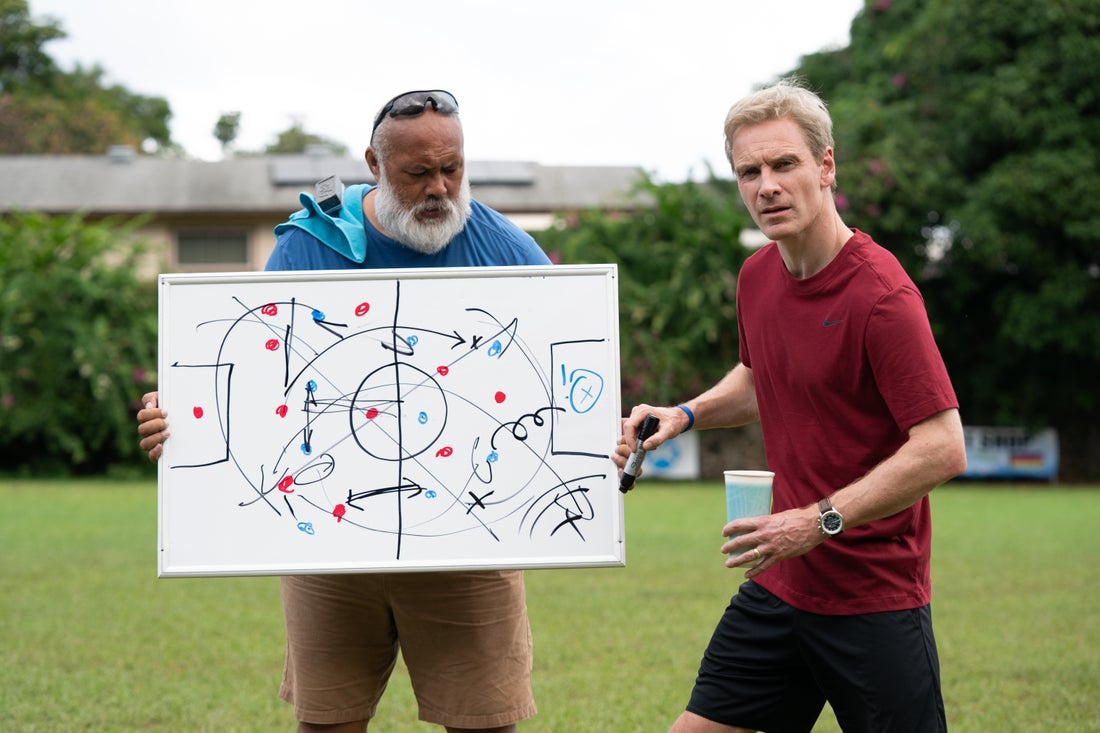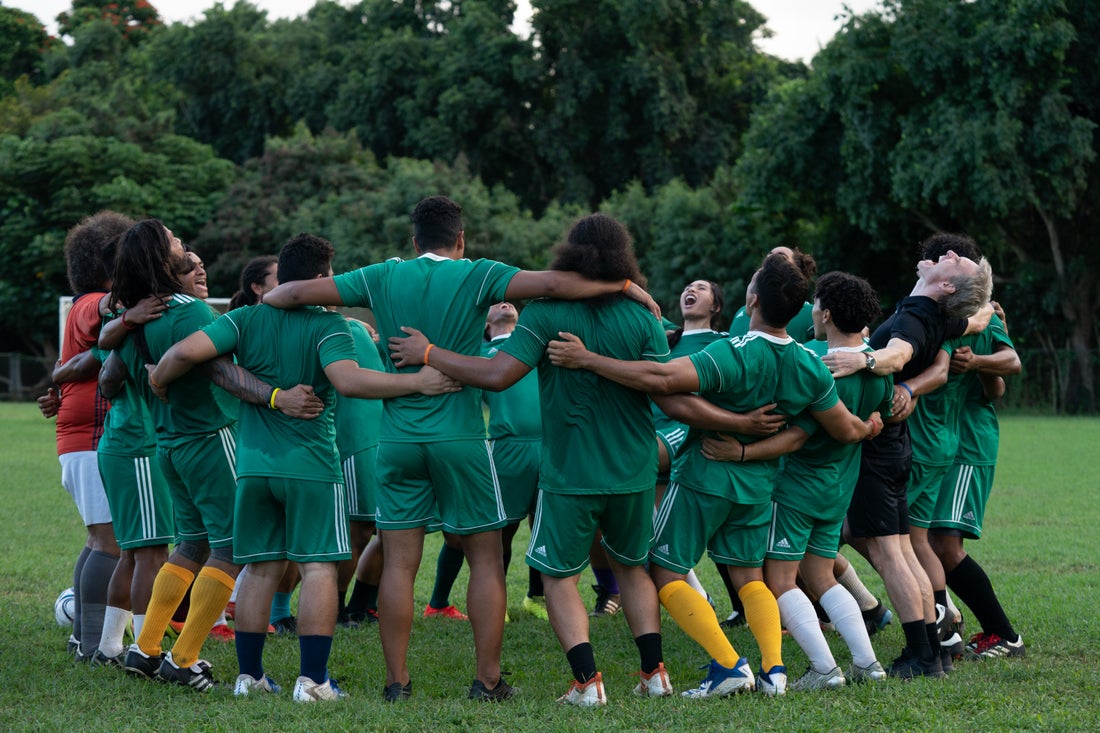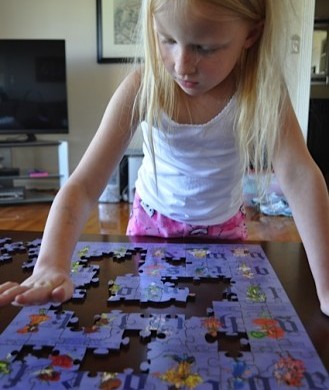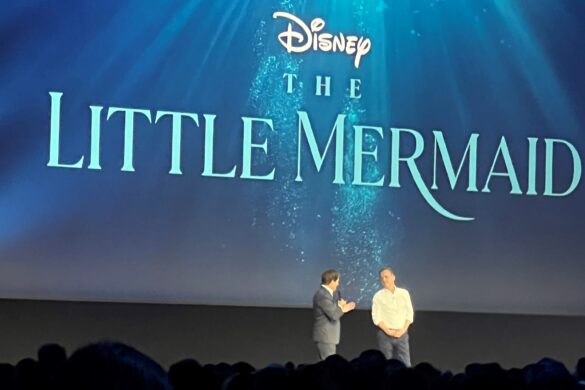“Next Goal Wins” has all the hallmarks of an inspirational and uplifting underdog sports story, but director Taika Waititi’s signature humor isn’t enough to reinvent the genre.

Based on the true story of the doomed American Samoa national football team, whose 31-0 loss to Australia was one of the worst in World Cup history, “Next Goal Wins” tells a dual story. One centering on Dutch American football coach Thomas Rongen (Michael Fassbender), whose fall from grace has led him to make an impossible choice: he can stay fired from the game he loves or go to the tiny island of America Samoa to help rebuild one of the weakest teams in the world and turn them into a team that could score at least one goal. The other story follows fa’afafine player Jaiyah Saelua (Kaimana), the first openly non-binary and trans woman player ever to compete in a FIFA World Cup qualifier game. At first, the two are at odds with each other. Neither of them would give each other the time to understand the other. But in due time, they settle their differences and come to see what they’ve been struggling with all along.
After directing two superhero blockbusters and one Academy Award-winning film, Waititi returns to his roots by directing smaller films with a big heart. It’s a celebration of the unseen misfits and outcasts who want nothing more than to be recognized for their efforts while embracing the weird and wacky. Though it has all of the elements that make the underdog story such tearjerkers, “Next Goal Wins” adheres to a familiar sports cinema structure and glosses over the more impactful dynamics – like the one between Rongen and Saelua – while doing absolutely nothing to reinvent the genre. It’s a film that goes through the typical motions and pairings. Rongen is the disgraced coach who wants nothing to do with anyone and often looks down on the team he believes has no talent or chance at winning a game, let alone scoring a goal. Though he’s a man who is an island while also living on an island, the team mends Rongen’s broken heart. Eventually, Rongen learns to open up to his new family. Following such a formula to the letter, it’s hard to fault a film that makes you laugh through its physical humor and witty dialogue, then hits you in the emotional gut when Rongen and the American Samoa team connect on a deeper and more spiritual level.
At times, the film is self-aware. Much of that is humorously executed through its opening exposition, where Waititi, playing an American-Samoan priest, details the story of a woeful team making the impossible possible and viewers going “woah” by the movie’s end. Then there’s the film acknowledging the white savior complex when one of its players is keenly aware that the American Samoa national team wants to bring in a coach from outside the island. And so “Next Goal Wins” tries to subvert that notion by asking the audience to recognize that Rongen is a flawed man masking internal pain.
It’s nice to see Fassbender take a break from playing intense characters with tragic backstories. Although Rognen’s cantankerous attitude stems from grief, he’s a coach whose drunkenness and inability to connect breaks down to reveal a man with a heart and the talent to turn these misfits and outcasts into superstars. It’s not as though the film is asking them to do much, but the bar is so high for them, and Rognen’s challenge is so great that it almost seems impossible to get that one goal. So the film relies on that familiar dynamic, which often puts the coach who doesn’t want to be there with a team with no hope of achieving anything. So, to break away from that formula, “Next Goal Wins” has to rely on those physical comedy bits and some off-kilter humor to move the story forward. And for the most part, it works because it’s what Waititi is good at.
Unfortunately, “Next Goal Wins” doesn’t flesh out the relationship between Rongen and Saelua, which should have served as the film’s heart. While Saelua’s journey transitioning from a man to a woman is glossed over through small scenes of hormonal injections and deep conversations spotlights faʻafafine, it doesn’t do enough to show what an outsider like Rongen has to do to understand his player’s journey as they are transitioning. Of course, there’s the obligatory headbutting and stubbornness between the two, but then it leans into something more contemporary by revealing Rongen’s ignorance by deadnaming Saelua. Because their conflict was resolved so quickly and effortlessly, their reconciliation feels more like placating.
Despite its flaws, Waititi can craft a story that’s heartwarming and humorous while also educating its audience on the American Samoan culture and lifestyle, all the while spotlighting faʻafafine and the importance of respecting one’s gender identity.

7.5/10
Now, since this is a digital review, we are also taking a look at the bonus features that are available on the home entertainment version. Of which there is only one. Creating The Pitch of Life explores how director Taika Waititi’s pays homage to American Samoa, Polynesian culture, and the sport of soccer in a short-form documentary that also pays tribute to his filmmaking style.
And there’s the obligatory deleted scene.
Here’s a full list of what you can find on the “Next Goal Wins” home entertainment release.
Bonus Features**
Featurette
Creating The Pitch of Life – Explore filmmaker Taika Waititi’s loving homage to American Samoa, Polynesian culture, and the sports movie in this delightfully entertaining short-form documentary. See what it took to make a winning movie about the losingest soccer team in the world.
Deleted Scene
Priest Blessing the Team
“Next Goal Wins” is available now on all major digital retailers, including Prime Video, Apple TV, and Vudu on January 16, and arrives on Blu-ray and DVD on February 27, with never-before-seen bonus content, including Taika Waititi’s homage to American Samoa, Polynesian culture, and sports movies.











